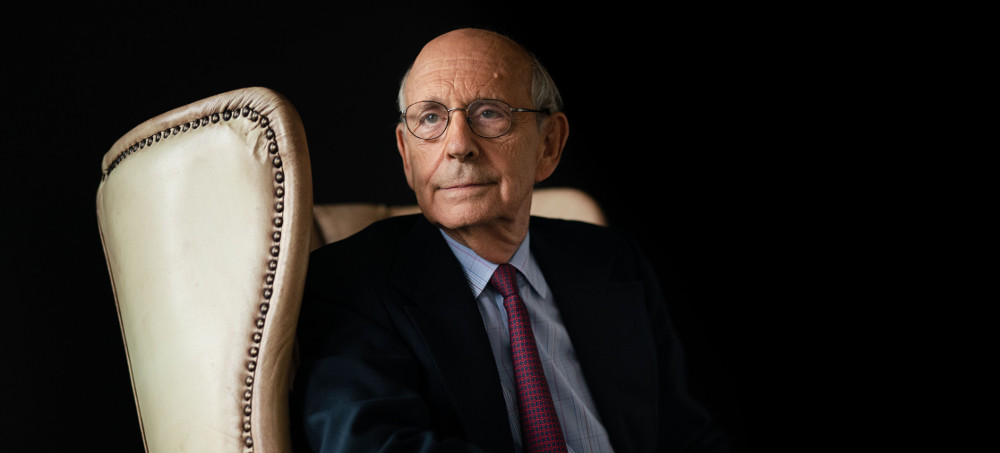Live on the homepage now!
Reader Supported News
It is ironic that the sitting justice who has staked his career on the proposition that justices are not political actors, not partisan shills, and not, in his parlance, a bunch of “junior varsity politicians” is choosing to leave the court in a move timed precisely to coincide with a closing window of opportunity for the president and the Senate. He has—as recently as this past fall—argued vigorously that the odor of political partisanship does brutal damage to the judiciary. In his most recent book, The Authority of the Court and the Peril of Politics, Breyer wrote that “if the public comes to see judges as merely ‘politicians in robes,’ its confidence in the courts, and in the rule of law itself, can only decline.” In what seemed at the time like a prayer, but now reads more like an elegy, he worried that “with that, the Court’s authority can only decline, too, including its hard-won power to act as a constitutional check on the other branches.”
For progressives who have been pressuring Breyer to step down—terrified that he would replicate Ruth Bader Ginsburg’s error in waiting too long to retire only to be replaced by someone who will toil to undo her entire legacy—Breyer’s decision to both step aside and to do so in a spectacularly calculated political fashion will feel like the end of a successful campaign. He had said only recently that he was not yet ready. But they may have ripped the blinkers off an 83-year-old man who believed he was modeling civics and collegiality when he was in fact being rope-a-doped by smiling Trump appointees, who were civil and collegial in person while also beavering away to end voting rights, the ability to organize, the administrative state, reproductive freedom, the separation of religion and government, and reasonable gun regulation. All that has happened in just under a year. It will pick up speed in the coming weeks and months.
So progressives have a point. But Breyer had his own priorities. In his most recent book, his prescriptions for depoliticizing the court were very much of the glacially slow variety: He argued to improve civics education and participation and help the public practice “the skills of cooperation and compromise in order to learn them and to keep them.” When I interviewed Breyer last winter, he suggested that, as he learned from decades on the bench and his time working for Sen. Edward Kennedy on the Senate Judiciary Committee, the best is the enemy of the good: “If you have a choice between achieving 20 or 30 percent of what you’d like or being the hero of all your friends, choose the first.” He also told me that in public life, “don’t worry about credit. Credit is a weapon. You give the other person the credit.” His time on the bench was profoundly shaped by both of those values.
Progressives sometimes tore their hair out at Breyer’s willingness to compromise, split the difference, and take what he could get, notably in the first challenge to the Affordable Care Act but also in ways that increasingly marked him as different from Ruth Bader Ginsburg and Sonia Sotomayor, who often dissented together or alone. For those who believed that he was working far too hard to make his own aspirational dreams about judicial independence and collegiality stick in the public mind, long after the Trump judges were rammed onto the court in hyperpartisan ways, one point is worth emphasizing: Breyer was romantic, perhaps to the point of self-delusion about the court, but he has been anything but a fantasist in his nearly three decades of judicial work on that body. He focused on mundane details of the administrative state—a field too arcane and boring for most judicial big shots—because he is a passionate believer in the government as an entity that exists to solve problems in workable and efficient ways. He thinks about cost/benefit, pragmatic solutions in a manner that is almost entirely absent from the thought processes of the current supermajority, that is so in love with a centuries-old mythology of government and power that it can be blind to exigent climate health and environmental reality.
And while Breyer was possibly a hopeless romantic—right to the bitter end—about the need for civics, cooperation, mutual respect, and dignity on the bench, he has proved to be the most realistic about assessing the moment in which we now find ourselves: a judiciary committee that may deadlock 11–11 and be saved by parliamentary maneuvers; two Democratic senators who are not all that interested in preserving voting rights; and the prospect that a July retirement might not have afforded the president enough runway to get someone confirmed by November. That is the world we now inhabit. That the justice for whom the notion of constitutional and judicial “hardball” has always been anathema has just ended his Supreme Court career with the most hardball Supreme Court retirement in recent history speaks volumes about the current moment, even if it does so in the spaces between the words he speaks aloud.
Follow us on facebook and twitter!
PO Box 2043 / Citrus Heights, CA 95611



No comments:
Post a Comment